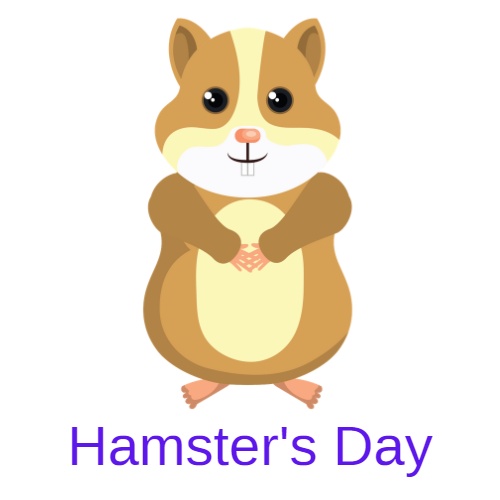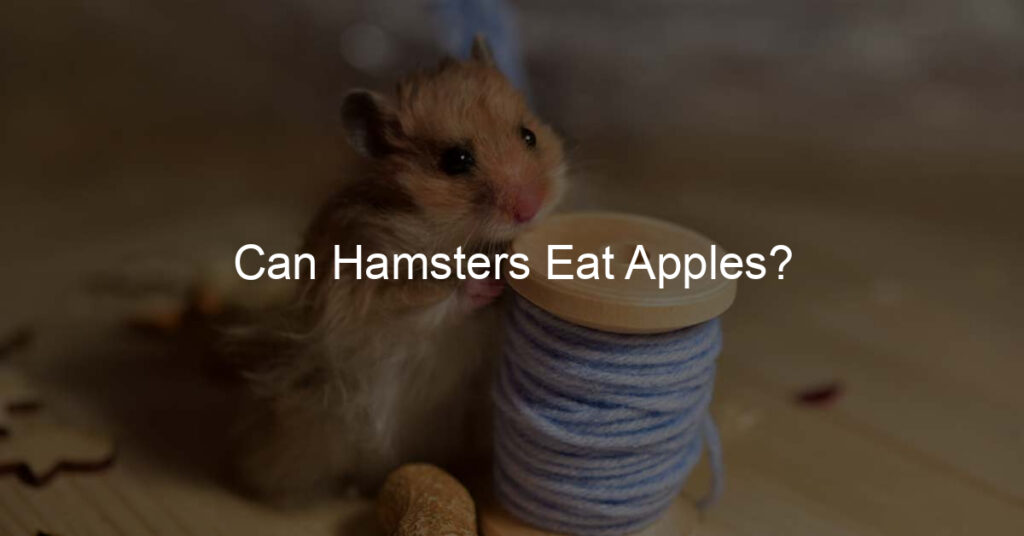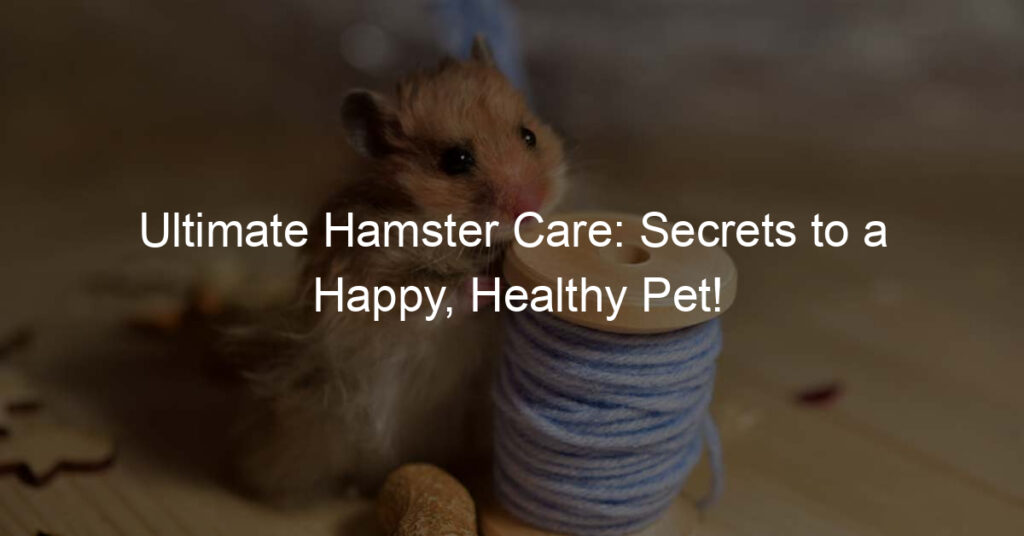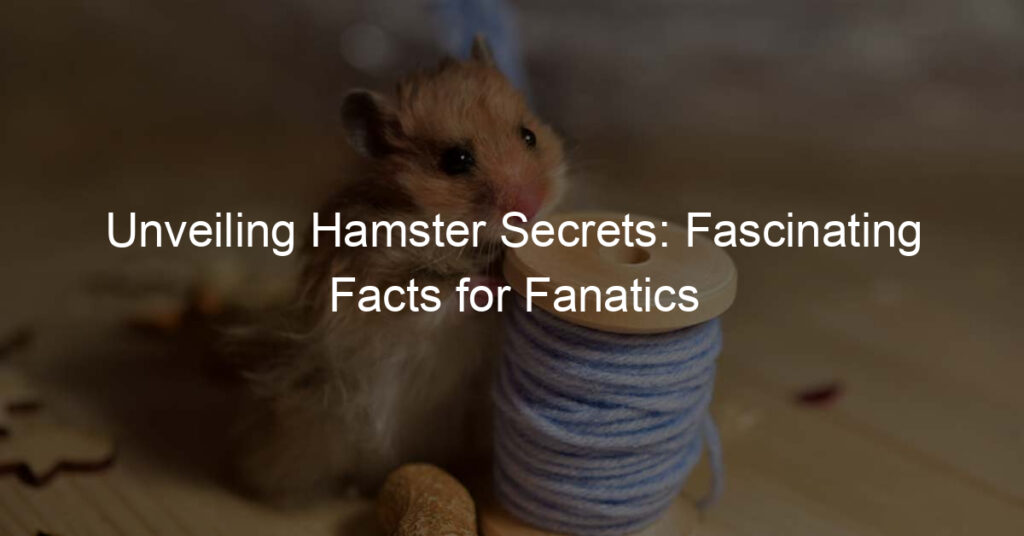Hamsters are popular pets known for their cute and cuddly appearance.
As responsible pet owners, it is essential to provide them with a healthy diet that meets their nutritional needs. A common question among hamster owners is whether or not they can feed apples to their furry friends.
Apples are a nutritious fruit suitable for human consumption. They are rich in dietary fiber, vitamin C, and potassium, which raises the question of whether they are beneficial for hamsters too.
In this article, we will explore the question of whether can hamsters eat apples. The nutritional content of apples and discuss the pros and cons of incorporating apples into your hamster’s diet.
Key Takeaways
- Apples can be a healthy treat for hamsters, but moderation is key.
- Remove apple seeds before feeding due to trace amounts of cyanide.
- Always consult a veterinarian regarding your hamster’s specific dietary needs.
Can Hamsters Eat Apples
Yes, hamsters can eat apples. They are a safe and healthy treat for these tiny pets to enjoy. However, it’s essential to follow some basic rules when feeding apples to hamsters to reduce any potential side effects.
Firstly, make sure to remove the seeds from the apples. The seeds can pose a choking hazard for hamsters and may also contain small amounts of toxic substances. It’s also important to cut the apples into small, manageable chunks that are easy for the hamster to eat.
When it comes to how often and how much apple to feed your hamster, moderation is key. As hamsters are omnivores, their diet should consist of a variety of plant and animal materials.
Apples should only be fed to hamsters as a snack, not a primary food source. Overfeeding apples can lead to health issues due to their sugar content.
Additionally, remember to remove any uneaten apple pieces from the hamster’s cage. This will prevent the fruit from spoiling and creating an unhealthy environment for your pet.
Incorporating apples into your hamster’s diet can be a fun and nutritious way to provide them with a treat. Just be sure to follow these guidelines to keep your hamster happy and healthy.
The Nutritional Content of Apples
Apples are not only a popular snack for humans but also a nutritious treat for hamsters when offered in moderation. One key benefit of apples is their high fiber content, which promotes digestive health in hamsters.
They contain both soluble and insoluble fibers, which can aid in maintaining healthy digestion and preventing constipation in these small pets.
Another essential nutrient found in apples is vitamin C. This antioxidant plays a crucial role in the immune system, helping hamsters ward off diseases and ensuring healthy skin.
Furthermore, vitamin C assists in wound healing and prevents scurvy in these animals.
Talking about minerals, apples contain potassium, calcium, and magnesium. Potassium is necessary for ensuring proper nerve and muscle function, while calcium and magnesium contribute to maintaining healthy bones and teeth.
Despite the many benefits that apples provide, they also contain sugar and carbohydrates. Hamsters can experience digestive upset if they consume excessive amounts of sugar, so it is essential to limit apple consumption to small portions.
It’s also worth noting that apples have a low-calorie count, making them a suitable treat for weight-conscious hamsters.
Apples also contain flavonoids and polyphenols, a group of antioxidants that protect cells from damage and can potentially boost the immune system.
These nutrients not only contribute to maintaining overall health, but they also aid in keeping their skin, fur, and nails in optimal condition.
Finally, apples are composed mostly of water, which can help with hydration. This is particularly important, as proper hydration ensures hamsters have the energy they need to stay active and maintain their overall well-being.
In conclusion, apples are a valuable source of fiber, vitamins, minerals, and other essential nutrients that can provide a variety of health benefits for hamsters.
Offering apples to your hamster in moderation will help them maintain a balanced diet and contribute to their overall health and happiness.
The Health Benefits of Apples for Hamsters
Apples are a popular fruit that offers various health benefits for humans and hamsters alike. When it comes to our furry little friends, apples provide essential nutrients that can enhance their overall well-being.
Let’s explore some of the key health benefits that apples bring to hamsters.
First and foremost, apples are a great source of vitamin C. This natural antioxidant plays a vital role in boosting the immune system, helping hamsters fight off diseases and heal wounds more effectively.
Besides vitamin C, apples also contain other antioxidants, such as flavonoids, which contribute to the overall health of hamsters.
Another important benefit of apples for hamsters is their fiber content. Fiber promotes a healthy digestive system in these pets, ensuring that their gut functions properly.
In turn, this enables the hamsters to absorb the necessary nutrients from their food and maintain a healthy weight.
In addition to fiber, apples are packed with essential minerals like potassium and modest amounts of calcium. While these minerals may not be required in large quantities, they certainly play an important role in maintaining the overall health of hamsters.
For instance, potassium is necessary for proper muscle function, and calcium aids in building strong teeth and bones.
Hydration is also crucial for hamsters, and apples can help keep them well-hydrated. With a high water content, apples make for a refreshing treat that can aid in maintaining the bodily fluids of hamsters, helping them stay hydrated and healthy.
Apples serve as a nutritious and delicious snack for hamsters, offering numerous health benefits. These fruits provide essential antioxidants, vitamins, minerals, and fiber, all of which contribute to the proper functioning of a hamster’s digestive system and overall health.
Next time you’re looking to spoil your hamster with a tasty treat, consider giving them a small piece of apple to enjoy!
Risks and Precautions When Feeding Apples to Hamsters
Although apples are generally safe for hamsters to eat, there are a few risks and precautions to consider before offering this fruit to your furry friends.
In this section, we will explore some potential dangers of feeding apples to hamsters and provide tips on how to minimize these risks.
Apple Seeds and Cyanide
One important precaution when feeding apples to hamsters is to avoid the apple seeds. Apple seeds contain a small amount of cyanide, which can be toxic if ingested in large quantities. Always remove the seeds before offering apple slices to your hamster.
High Sugar Content
Apples, like many fruits, are high in sugar. While a small amount of sugar is safe for hamsters, too much can contribute to diabetes and other health issues. Offer apples in moderation and monitor your hamster’s overall sugar intake to avoid potential problems.
Choking Risk
Small pieces of apple can pose a choking hazard for hamsters, especially if they try to stuff their cheeks with multiple pieces. To minimize this risk, offer apple slices that are appropriately sized for your hamster, and supervise them while they are eating to ensure their safety.
Pesticides and Dirt
Apples can carry traces of pesticides and dirt on their skin. To reduce the risk of exposing your hamster to these contaminants, wash the apple thoroughly before cutting it into slices.
Organic apples might have fewer pesticide residues, but it’s still important to wash them before feeding.
Obesity and Diabetes
Offering too many high-sugar treats, such as apples, can contribute to obesity and diabetes in hamsters. Maintain a balanced diet for your hamster by providing a variety of fruits, vegetables, and grains while limiting sugary treats.
Monitoring your hamster’s overall health and weight can help prevent these issues.
By keeping the above risks and precautions in mind, you can safely offer apples to your hamster as an occasional treat. Remember to always remove the seeds, wash the apples, and provide appropriately sized slices to ensure your hamster enjoys a tasty and nutritious snack.
Serving Apples to Your Hamsters
Washing and Preparing the Apple
Before feeding apples to your hamster, it is important to wash the fruit thoroughly to remove any pesticides or dirt that might be present. A ripe apple is safe for your hamster to enjoy.
If you choose to give your hamster apple peels, make sure to wash the skin properly. However, you may also peel the apple to ensure that your hamster is only consuming the fruit flesh.
Moderation is Key
While apples are beneficial for hamsters, they should be given only in moderation. This is due to the sugar content in apples, which can cause digestive upset and lead to obesity.
It’s recommended to serve half a teaspoon of apple pieces once or twice a week at most. Remember, fruits and vegetables should be considered a supplement to your hamster’s diet, not a staple.
Removing the Seeds and Core
When serving apples to your hamster, make sure to remove the seeds and core. Apple seeds contain amygdalin, which can produce toxic hydrogen cyanide when consumed.
Hamsters are sensitive to this toxin, so it’s crucial to avoid giving them any apple seeds. Simply cut the apple into small, manageable pieces for your hamster to enjoy safely. By doing this, you’ll provide a healthy treat that contributes to your pet’s well-being.
Alternatives to Apples for Your Hamster’s Diet
Hamsters are small rodents that require a well-balanced diet to thrive and maintain good health. While apples can be an occasional treat, it’s essential to include a variety of other fruits, vegetables, and grains in their diet.
Here are some alternatives to apples that can provide the necessary nutrients for your hamster.
Fresh fruits are a favorite among hamsters due to their taste, texture, and nutritional benefits. Some popular fruit options that hamsters can safely enjoy include bananas, strawberries, and blueberries.
These fruits are rich in vitamin C, which can help boost their immunity and keep them happy and healthy.
Aside from fruits, hamsters can also benefit from eating an assortment of vegetables. Nutritious vegetables for hamsters include cucumber, peppers, and leafy greens.
These vegetables are packed with vitamins and minerals that contribute to the overall well-being of small animals like hamsters.
While fruits and vegetables are a great addition to your hamster’s diet, they can benefit from other food sources as well. Grains, such as whole wheat or oats, provide essential nutrients and energy for their active lifestyle.
Further, other treats like nuts and seeds add variety and can fulfill their love for chewing and foraging.
However, it’s essential to remember that not all foods are suitable for your hamster’s diet. For example, avoid giving them citrus fruits or other sour foods, as these can upset their sensitive digestive system.
Similarly, though hamsters enjoy cheese, it should be offered only in small amounts as a rare treat due to its high-fat content.
Protein is also vital for a hamster’s diet, with options such as mealworms or other insects being a suitable source. Commercially available hamster pellets can also be an excellent staple in their diet, providing essential nutrients and minerals in a balanced and convenient form.
Remember, moderation is key when introducing new foods to your hamster’s diet, and it’s always a good idea to keep an eye on their behavior and monitor their health when introducing new treats.
Offering a diverse and balanced diet ensures that your hamster remains healthy, happy, and well-nourished.
Consulting the Veterinarian
When considering feeding apples to a pet hamster, it is always a good idea to consult a veterinarian first. A vet can provide valuable guidance on how to safely indulge a hamster in this delicious treat while ensuring the animal’s health and well-being are maintained.
Veterinarians are knowledgeable about the dietary requirements of hamsters. They can provide information about potential health problems that may arise from consuming inappropriately formulated diets.
This information is essential for pet owners to make informed decisions about the types of food they offer their furry little friend.
When caring for a pet hamster, it is crucial to keep their habitats clean, provide proper nutrition, and watch for any signs of discomfort or illness.
A veterinarian might recommend feeding small amounts of apple to a hamster as a treat, ensuring that the fruit is free of seeds and cut into small pieces.
However, the veterinarian may also warn about potential risks associated with feeding apples to hamsters. For example, excessive consumption could lead to obesity or digestive problems.
It is essential to follow a vet’s advice regarding portion sizes and frequency when feeding apples to hamsters.
A good veterinarian is more than willing to answer questions and provide guidance on how to best care for a pet hamster. In the case of feeding apples, it’s essential to understand the proper technique to avoid any adverse effects on the health of your beloved pet.
Consulting a veterinarian is a vital step in ensuring a pet hamster’s optimal health.
By following the vet’s advice on apple feeding, pet owners can offer a delicious and safe treat while maintaining their hamster’s overall well-being.
Frequently Asked Questions
Can apple seeds be harmful to hamsters?
Yes, apple seeds can be harmful to hamsters. Apple seeds contain a small amount of cyanide, which can be toxic for your little pet. Therefore, it is essential to remove all the seeds before giving apple pieces to your hamster.
What other fruits are safe for hamsters to consume?
Hamsters can enjoy a variety of fruits in moderation. Some safe fruits for hamsters include pears, blackberries, and small amounts of bananas. Be sure to remove any seeds or pits and wash the fruits thoroughly before feeding them to your hamster.
Are green apples suitable for hamsters?
Yes, green apples are suitable for hamsters as long as they are given in moderation. Just like red apples, make sure to remove the seeds and wash the fruit before offering small pieces to your hamster.
Is it okay for hamsters to eat apple cores?
It is not recommended for hamsters to eat apple cores, mainly because the core contains seeds that can be harmful to them. Stick to giving your hamster small, seedless pieces of apple instead.
What vegetables are ideal for a hamster’s diet?
Hamsters can enjoy a variety of vegetables as part of their diet. Some suitable vegetables include carrots, cauliflower, broccoli, spinach, and cabbage.
Remember to wash and chop them into small pieces and offer them in moderation, as too much can lead to digestive issues.
Are there any fruits to avoid in a hamster’s diet?
Yes, there are some fruits that should be avoided in a hamster’s diet. These include citrus fruits like oranges, lemons, and grapefruits, as their high acidity can be detrimental to a hamster’s health.
Also, avoid fruits with pits or large seeds, such as cherries and grapes, since these can pose a choking hazard. Always be cautious and do your research before introducing new fruits to your hamster’s diet.








